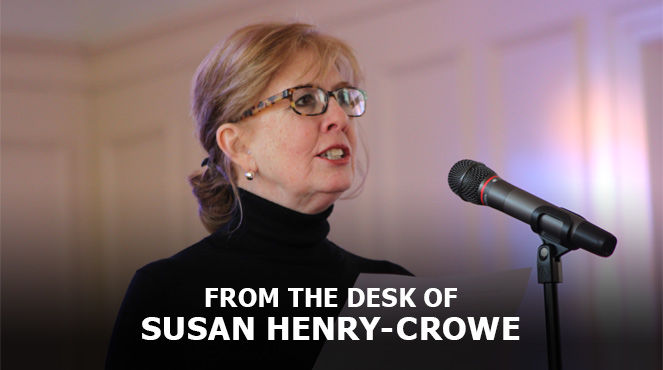Shaping a just and peaceful world by 2040
The past few years have been troubling and anxiety producing. Pandemics, racism, wars, climate change, the rise of nationalism in many countries, migration and tentative economies. All the while the church has focused itself on internal struggles believed to threaten its very survival.

In a recent meeting of General Secretaries, I opined that we must turn our focus to the world we want to help “shape into being” by 2040. What is the Christian voice, presence and power in the near future, 2040? As a small part of nearly 2 billion Christians world-wide, what does our faith call us to be and do? How is the church positioning itself to address not only the Methodist presence in the world, but a relevant Christian voice in a “dangerous decade?”
What is our Christian voice in a world that is less than 20% democratic? Do we believe that democracy (or a republic) is the best form of government? Do we believe in the eradication of violence in every form? Do we believe in the sacredness of all peoples and lands? Do we believe in equity and equitable distribution of wealth, and health service, and tender care of the environment?
In the current, centennial issue of Foreign Affairs magazine, Dr. Richard Haass, the President of the Council of Foreign Relations, which I and other United Methodist Church leaders attend meetings on a regular basis has written, “The Dangerous Decade: A Foreign Policy for a World in Crisis.” He discusses two aspects. One is disorder on the rise with an analysis of “older world geopolitics colliding with complex new challenges.” The other is “Trouble at Home.”
He articulates the urgency and dangers of Russia’s aggression against Ukraine as well as the challenges with China both politically and economically. Nuclear non-proliferation is a critically important issue arguing for multilateralism in addressing foreign policy.
Even more urgent is his analysis of “Trouble at Home.” According to Haass, the country retains many strengths, but some of its advantages – the rule of law, orderly transitions of power, the ability to attract and retain talented immigrants, socioeconomic mobility – are now less certain than they once were, and problems such as gun violence, crime, drug abuse and immigration have become more pronounced. “The country is held back by its political divides,” says Haass.
The U.S. and many countries around the world are indeed stymied and stuck by deep political divides. The United Methodist Church is held hostage by its deep political divides. The Christian community is compromised by its political divides.
While the UMC and sister communions continue our long history of expressing our faith commitments, conscience and voice to serve as vital contributors on critical global and domestic issues, we must not only be reactive, but also help to cast a vision for a world that is more just and peaceful.
As we move into election cycles in the U.S. and several nations around the world, our conscience must be clear and our vision long. Born out of Christian conscience and teaching, our voices and our votes matter. Not only do our votes matter, but also knowing our common values and commitment to biblical faith for love, justice and peace matter. Engaging the future with our children in mind matters. Addressing issues of climate injustice matters. It matters for this year and next. It matters for the next decade. And it matters to get us to 2040.
Haass ends his essay with a challenge for us all.
“Ultimately, however, the biggest risk to U.S. security in the decade to come is found in the United States itself. A country divided against itself cannot stand; nor can it be effective in the world, as a fractious United States will not be viewed as a reliable or predictable partner or leader. Nor will it be able to tackle its domestic challenges. Bridging the countries divisions will take sustained effort on the part of politicians, educators, religious leaders and parents. Most desired norms and behaviors cannot be mandated, but voters have the power to reward or penalize politicians according to their behavior. And some changes, including expanding civics education and opportunities for national service could be formally introduced.”
Through religious education and Christian formation, the church has a wonderful opportunity to turn from our polarization, stuckness, internal naval gazing, fear and anxiety to uphold and honor peoples, communities and creation “shaping a just and peaceable world into being.” Church service to the larger world is what many of us grew up believing and how we were formed. Touching the lives, understanding the stories and walking along side one another gave us a vision of a more equitable and just world.
It is not too late to cast our vision remembering creation as it was born in order to shape the future together as the Creator and Redeemer yearns.